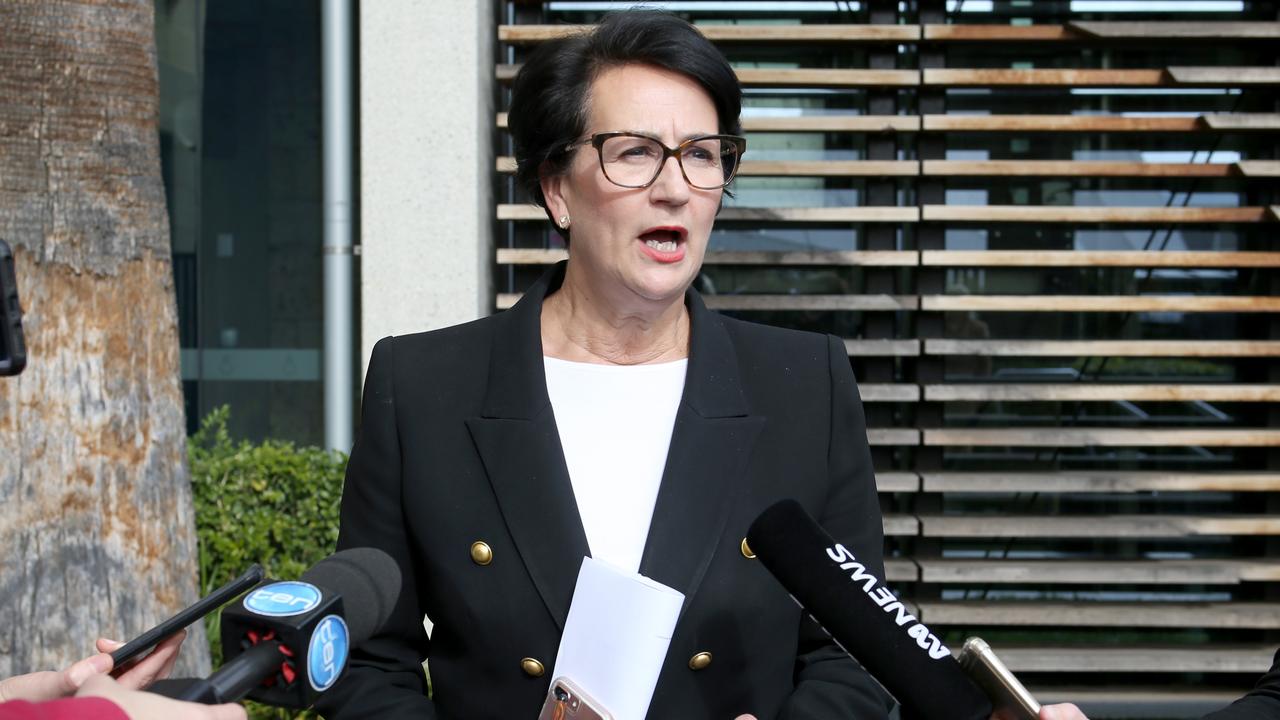Sean Fewster: Abolishing sex secrecy ends court inequity
Abolishing identity bans for alleged sex offenders will address an age-old inequity, says Chief Court Reporter Sean Fewster — and that should be the goal of everyone in the legal system.
Opinion
Don't miss out on the headlines from Opinion. Followed categories will be added to My News.
Everyone is supposedly equal under the law but, for decades, there has been a special class of alleged criminal in the South Australian justice system.
Alone among offenders, anyone charged with a sex offence — from indecent assault through to rape — receives an automatic suppression order upon their identity.
Unlike an alleged murderer, gunman or thief, they do not have to convince a magistrate that publicity would prejudice their trials or place their families in danger.
Supposed conmen and fraudsters have to petition judges for anonymity and prove their reputations would be injured by media attention — but alleged sex criminals do not.
Why the two-lane approach? The answer is lost to the mists of time but seems rooted in the SA of the 1970s which, of course, feeds any number of conspiracy theories.
Of late, defenders of the status quo — including the former Labor Government — have argued the mud of a sex allegation sticks more than any other, warranting the added secrecy.
For almost two decades, The Advertiser has campaigned against the overuse of suppression orders, with this automatic and abusive anonymity one of its primary targets.
There seemed no sensible reason why courts must offer any alleged criminal a legally-guaranteed mask rather than emphasise open justice and the public’s right to know.

It was puzzling why those in power would want to lessen the chances of other victims and witnesses coming forward by censoring all community understanding of a sex case.
And it was unfathomable those accused heinously robbing vulnerable men, women and children of their safety and innocence should be given the largest rock under which to hide.
Advocacy groups agreed, saying that — in the era of “Me Too” — SA had become a legislative dinosaur apparently more concerned with the wellbeing of offenders than of victims.
Those calls have finally rung true in political ears but changing the law will be no small task for the State Government.
Labor has historically opposed such a move, regardless of its own export legal advice.
Defence counsel and civil libertarians will likely cry foul, and their opinions may well be shared by some members of the judiciary.
Such an outcry ignores the fact alleged offender’s identities can still be hidden — they will just have to convince a court of the need to do so, like everyone else.
For too long, these unbalanced laws have offered special treatment to one set of people while trampling on the rights of others.
That, put simply, is an injustice — which courts and those who work in them are sworn to stamp out — and it must finally be remedied.
SAFE AS HOUSES
A hallmark of Adelaide’s property market has long been that it is very steady as it goes and avoids the wild peaks and troughs witnessed in the eastern states and in Perth.
Now a new report shows Adelaide is set to be one of the best performing capital cities for property price growth over the next three years.
The CoreLogic-Moody’s Analytics report predicts that only Adelaide and the ACT will have positive growth in property prices every year for the next three years.
According to the report, prices across Adelaide will grow 6.7 per cent over the three-year period.
The growth is predicted to be driven by various factors pointing towards a strong future for the state — steady employment figures, growing defence and space industries, and high infrastructure spending.
An under supply of quality housing stock is also set to drive growth in the market.
It all points to good news for property owners, who could get a further boost in the form of the Reserve Bank cutting interest rates further this year.



